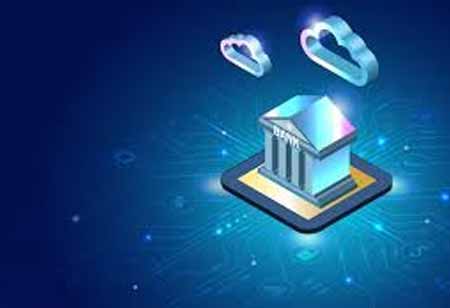THANK YOU FOR SUBSCRIBING

By
Banking CIO Outlook | Wednesday, October 30, 2024
Stay ahead of the industry with exclusive feature stories on the top companies, expert insights and the latest news delivered straight to your inbox. Subscribe today.
Open banking, an essential advancement in financial services, enables secure data sharing and collaboration but raises privacy and security concerns. Governments plan stricter regulations by 2025.
FREMONT, CA: Open banking represents a significant advancement in the financial landscape, enabling secure data sharing and collaboration among financial institutions, technology companies, and customers. Dismantling traditional barriers facilitates secure collaboration and data exchange among all stakeholders, empowering consumers, fostering competition, and driving innovation within financial services. Experts assert that open banking has the potential to create a more inclusive, secure, and customer-centric financial ecosystem. This discussion will explore future trends to understand the impact of open banking better.
Open Banking Trends to Watch in 2025
Open banking utilizes application programming interfaces (APIs) to grant third-party developers access to data within traditional banking systems. This model enhances consumer control over financial information while enabling service providers to improve decision-making and offer customized solutions, fundamentally transforming how economic data is shared and accessed.
As open banking expands, partnerships with technology firms may expose banks to increased risks and cyber threats. The sophistication of generative artificial intelligence (AI) is rising, complicating the ability of financial institutions to differentiate genuine customers from deepfakes.
Governments are anticipated to implement stricter regulatory frameworks and advanced security technologies by 2025 to counter these evolving threats and safeguard consumer data. Innovations such as biometric authentication, blockchain, and AI-driven security protocols will protect customer information from breaches.
Artificial intelligence and machine learning will be instrumental in the continued growth of open banking. Financial institutions and fintech companies will leverage these technologies to provide personalized services and proactive financial management advice.
The prevalence of AI-driven chatbots and virtual assistants will increase, offering instant support and tailored financial recommendations. Additionally, integrating sophisticated voice-activated AI assistants with open banking platforms will redefine how consumers interact with their financial data.
Embedded finance refers to seamlessly integrating financial services—such as loans and payments—into non-financial applications. In the future, companies across various sectors will likely offer banking services as part of their product offerings.
Consumers may soon purchase insurance while booking holiday packages online or apply for loans while shopping on an app. This integration will enhance convenience and blur the lines between traditional financial institutions and other service providers.
Open banking is a foundational element for embedded finance. It presents innovative opportunities that extend beyond the financial sector and foster a more interconnected financial ecosystem.
Data-driven financial services can address inclusion disparities. CGAP research suggests that despite income and gender differences, more low-income individuals—including women—are generating digital data trails than ever before. This growth presents a significant opportunity to enhance financial inclusion.
Open banking will contribute to a more competitive and user-centric financial services landscape as it evolves. This model is increasingly recognized and integrated within financial ecosystems and is expected to strengthen further by 2025.
Collaborative efforts among financial institutions, fintechs, and regulators will improve consumer choices, enhance security, customize solutions, and overall financial well-being.
This banking model relies on APIs facilitating access to core banking systems and data. By optimizing API usage without compromising security, businesses and consumers can enjoy seamless access to tailored banking services. By 2025, initiatives to extend banking services to unbanked and underbanked individuals will gain traction, allowing financial institutions to offer a broader range of well-tailored solutions.
Open finance is poised to succeed in open banking, moving beyond banking data sharing to encompass a broader array of services. This expansion will include mortgages, credit cards, insurance, foreign exchange, retirement products, and cryptocurrencies. Such diversification fosters innovation and provides consumers with enhanced financial management tools and personalized services.
Financial institutions and banks are expected to adopt a more holistic approach, allowing consumers to manage all their financial assets from a single platform. Countries like Australia and India are exploring data exchange beyond the financial sector to facilitate a more open economy where data sharing extends across industries, including telecommunications, energy, and agriculture.
Open banking is driving the development of a more competitive and user-centric financial services landscape. This model is widely recognized and well-integrated into financial ecosystems, and it is poised for continued growth in 2025 and beyond. Collaboration among financial institutions, fintechs, and regulators will enhance consumer benefits, improving choice, greater security, customized solutions, and enhanced financial well-being. This banking model leverages APIs that grant access to banks' core systems and data. The efficient use of APIs enables businesses and consumers to access tailored banking services seamlessly while ensuring safety and security.
THANK YOU FOR SUBSCRIBING
Be first to read the latest tech news, Industry Leader's Insights, and CIO interviews of medium and large enterprises exclusively from Banking CIO Outlook
I agree We use cookies on this website to enhance your user experience. By clicking any link on this page you are giving your consent for us to set cookies. More info



